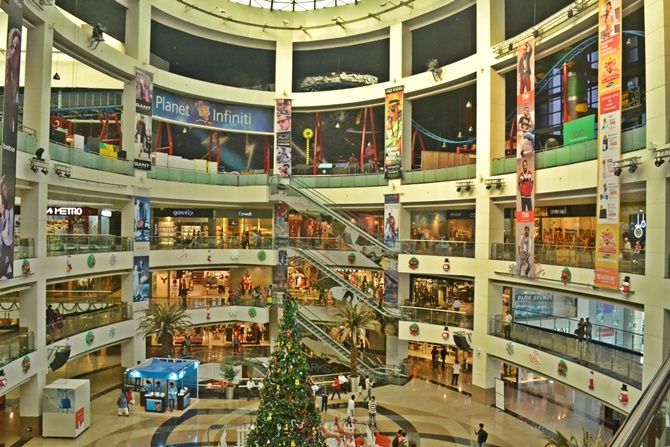 | « Back to article | Print this article |
Among the options being weighed are discounts on existing rentals, short-term deferrals, and 50 per cent waivers.

Top mall developers in India, such as Inorbit, Phoenix, and Brigade, are reworking their rental agreements with retailers as the two sides resolve their differences amid the reopening of malls in most cities.
Executives at these firms have told Business Standard that among the options being weighed are discounts on existing rentals, short-term deferrals, and 50 per cent waivers.
Shishir Shrivastava, managing director at Phoenix Mills, which has malls across the country, said it had worked out a three-month rent deferral programme for its tenants.
“We are talking to retailers on a one-on-one basis. We are not taking the path of complete waivers.
"But we are taking note of what retailers are telling us and are looking at a mutually acceptable solution,” Srivastava said.
Rajneesh Mahajan, chief executive officer at Inorbit Malls, said the company was giving a 50 per cent discount on rent to tenants from April to August.
Rahul Malhotra, marketing head at Brigade Group, which owns the Orion Mall in Bengaluru, said the company had agreed to give a rent waiver of 50 per cent to retailers during the lockdown months.
The move to get back to the negotiating table comes after big players such as DLF in the north and the Prestige group in the south waived fixed rent for the lockdown period, saying retailers were partners for whom they were sympathetic.
“We have all been faced with a cessation of revenues whilst our financial obligations to external shareholders have remained. We have worked on a rental programme that will support our rental partners to restart their business,” DLF Promenade Limited said in a letter last week.
The DLF group operates DLF Avenue Mall, Mall of India, and DLF Promenade, among others.
Prestige, on the other hand, said rent waivers would be extended on the fulfilment of certain conditions, including the absence of any outstanding dues by its retail partners.
"The fact that mall owners are open to talking to retailers today is a good sign. One month ago that wasn't even happening," said Lalit Agarwal, chairman and managing director, V-Mart Retail.
"Both retailers and mall owners have to co-exist. The attention now has to shift to get business going so that every one in the value chain benefits at the end of the day," he said.
Future Retail's joint managing director, Rakesh Biyani, has said attention has to move to demand creation.
"I have always said there has to be collaboration between the two sides.
"Now that it is happening, the needle has to move to assure consumers that it is safe for them to shop at stores," he said.
A study by the Shopping Centres Association of India says small towns have been more receptive to mall reopenings, which started from June 8, as against larger cities.
For instance, Centre Square Mall in Kochi saw a 65 per cent return in footfalls, with people buying groceries and apparels, while Kolkata-based Ambuja Neotia Group’s malls showed an uptick in sales of computers, phones, and sporting accessories from Adidas and Reebok.
Pacific Mall in New Delhi has seen 78 per cent of its retailers open doors, with sales surging for Apple products and Zara’s apparels.
Most retailers expect a revival in business in smaller towns than big cities.
"The existing trend suggests that smaller towns have been far more amenable to adjusting to the new normal than larger cities," said Arvind Singhal, chairman, Technopak.
"The larger cities like Mumbai, Delhi, Chennai and Pune are also grappling with more Covid-19 cases, which to some extent has hit shopping," he said.
The Unlock 1.0 programme will see more retail outlets including multiplexes open in its second and third phases which will kick in next month.